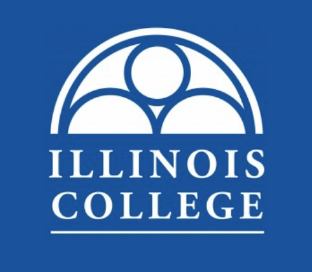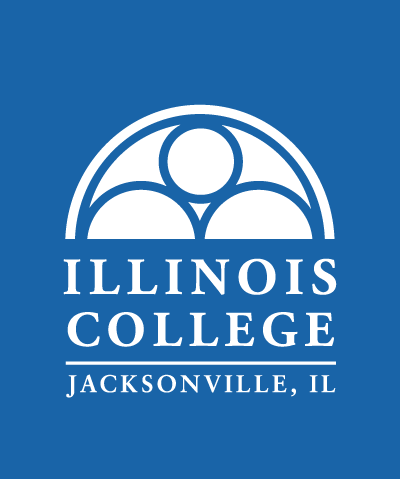Behavioral Health Program at Illinois College
You will gain the knowledge and skills to directly enter a helping profession or pursue advanced training in counseling, social work, marriage and family therapy, and more. If you are interested in working as a Certified Alcohol and Other Drug Counselor (CADC), we also offer an optional concentration in alcohol and other drug counseling.
CADC Certification
According to the U.S. Bureau of Labor Statistics, employment of substance abuse, behavioral disorder, and mental health counselors is projected to grow 18% from 2022 to 2032, much faster than the average for all occupations.
To meet this growing need, our behavioral health degree program allows you to take an optional concentration — which consists of four classes — to become a Certified Alcohol and Other Drug Counselor (CADC).
Available to behavioral health and psychology majors, our concentration in alcohol and drug counseling prepares you to support individuals who struggle with drug or alcohol challenges or who are in treatment or recovery. The concentration includes clinical hours in an approved alcohol and other drug clinical setting.
Our program will be accredited by the Illinois Certification Board and the CADC certificate is recognized by the State of Illinois.
Behavioral Health Degree Highlights
At Illinois College, you can meet with your behavioral health professors daily, enjoy small class sizes, participate in a vibrant campus life, and participate in or cheer on NCAA Division III sports programs. Here are more unique benefits of our behavioral health degree program.
Behavioral Health Degree Facilities
Work in our state-of-the-art Crispin Hall building that includes the latest classroom technology and research equipment, including a BioPac laboratory that allows you to collect physiological data (e.g., stress response) for hands-on learning and research.
Behavioral Health Research and Hands-On Learning
Work with our expert faculty on behavioral health-related research to better understand factors such as stress/trauma that underlie behavioral health issues. Our behavioral health degree faculty also perform research focused on addiction, test/math-related anxiety, risk-taking among college students, and child development.
Nearly 100% of our students complete at least one research, internship, or study abroad experience, and our students regularly travel to conferences to present their research.
Personal Career Advising for Behavioral Health
You are assigned a behavioral health faculty member to serve as your academic advisor. These advisors give career advice, often oversee internships, and can write recommendation letters or act as references.
You also have the option of speaking with an academic coach and members of our career readiness team who will review resumes, complete mock interviews, find internships, and help you connect their co-curricular learning with job-related skills.
Financial Aid for Behavioral Health
Our financial services team can help you find institutional aid, scholarships, and federal financial aid, like student loans, to make your behavioral health degree more affordable.
If you meet certain criteria, we also guarantee that you will graduate in four years, which can save you up to $70,000 for each year beyond the traditional four years.
Career Opportunities for Behavioral Health Degree Graduates
Our alumni Graduate READY to meet pressing social needs and are competitive for in-demand careers.
Illinois College graduates have pursued successful behavioral health careers in clinical and counseling psychology, school and forensic psychology, neuroscience, social work, and organizational behavior management. Our behavioral health degree also prepares you for graduate school in social work, mental health counseling, marriage and family therapy, or other behavioral health fields.
If you undertake our optional alcohol and drug counseling concentration, you can practice as a clinician in an alcohol and other drug setting with your bachelor’s degree. Employers are interested in graduates of our program who complete their CADC because of the background and knowledge of addictions and treatment, as well as basic counseling skills and theory.
Behavioral Health Degree Requirements and Courses
Our behavioral health degree provides basic counseling and crisis intervention skills and theory, including research foundations and cultural considerations. Specific behavioral health courses include:
- Counseling and Crisis Intervention
- Practicum hours at Gateway Foundation or another approved AOD clinical setting
- Introduction to Addictive Disorders
- Assessment, Treatment, and Prevention of Addictive Disorders
- Abnormal Psychology
You will also experience exceptional learning opportunities outside of the classroom. If you pursue the alcohol and other drug counseling concentration, you will complete eight practicum credits totaling 520 clinical hours in an approved alcohol and other drug clinical setting.
What You Will Learn
Supplement your behavioral health coursework with the optional AOD concentration to learn and practice in several major clinical-related areas, including the 12 core functions:
- Screening
- Intake
- Orientation
- Assessment
- Treatment planning
- Counseling
- Case management
- Crisis intervention
- Client education
- Referral
- Reports and record keeping
- Consultation with other professionals regarding client treatment/services
Expert Behavioral Health Faculty
Our behavioral health faculty are experts in their field who are trained as therapists and have significant clinical experience working with addiction-related issues as well as other behavioral/mental health challenges.
Programs Related to the On Campus Behavioral Health Degree
- Online Behavioral Health
- Psychology
- Sociology
- Neuroscience
- Nursing
- Criminal Justice
- Spanish
- Alcohol and Other Drug Counseling
- Addiction Studies Minor
Get Started in Our Behavioral Health Degree
The first step towards entering a rewarding behavioral health career is to apply to our program.


